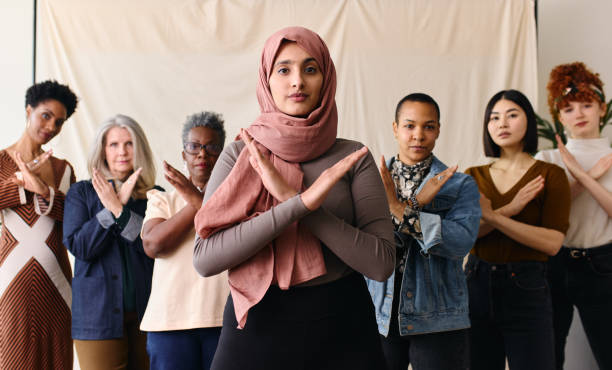
Since time immemorial, research has shown that women’s participation in GOVERNANCE is highly beneficial and has a greater positive impact on people’s lives.
Let’s bring it down home a little – In the home which is the most basic and smallest Government, women usually have a greater role in rearing their children in the moral values of the society. Hence they show greater leadership capabilities than their partners. As primary home caregivers and nurturers, they exhibit a stronger sense of Justice and fairness.. which they depict in the course of rearing their children. This is clear evidence that women’s participation in governance would be beneficial and should be encouraged.
What are the benefits that women’s participation in Governance could possibly bring to our present society? A lot, to say the least.
The benefits of Female Participation in Government;
- Gender-aware, Gender-responsive and gender advocacy – When it is said that gender inequality is actually the crux of most social injustices meted out, it appears as if the issue is being overstressed. ln fact this is being understated. Gender inequality is what affects every girl-child out there, right from birth till death. As a female, how would you like to be able to choose your course of study in the University without fear of chivalry and male dominance? Be it Aeronautical Engineering or Marine Engineering? How do you envisage a world where every woman has an equal opportunity of advancing in her career just as her male colleague has without the issue of gender arising? How do you feel about going for those opportunities that you’ve dreamed endlessly of if there didn’t exist clauses such as “You are a female” “If only you were a male”?
Higher participation of women in Governance means higher possibilities of having empathic leaders. Who are gender aware and gender responsive enough to espouse an agenda on priority gender concerns and advocacy.
- Priority to social concerns and disadvantaged population – Every society has a significant number of vulnerable and socially disadvantaged individuals. This group comprises of children, pregnant women, elderly people, malnourished people, and disabled people. Despite their significant number in society, laws are hardly made with particular considerations for their well-being as a disadvantaged group. Take, for instance, the issue of child marriage or the immobility issues of the disabled people. The present laws wouldn’t be as harsh as it is on them if they were featured in the considerations before those laws were put up in the first place.
More women in Government positions means one can reasonably expect that priority would be given to social concerns. Priority will be given to the relatively disadvantaged population group since women are natural nurturers.
- Stronger sense of fairness and justice – In our present century, the issue of corruption is a global problem. One would have thought that with all the global advancements made, that this particular vice would have long been expunged. The reverse is the case as this vice continues to hinder the rate of progress made in attaining major advancements globally. In some ways, we can expect that with a higher percentage of women in politics, there would be lesser social injustices and corruption. This is because women have a stronger sense of fairness and justice. They would try to be a model of morality that they try to install in their children.
- Peaceful resolution of conflicts – Women, in their capacity as nurturers, have been shown to usually favor the use of peaceful means over Force for conflict resolution. Sahle-Work Zewde; President of Ethiopia best summarizes this in her opening speech on the day of her election into office. She said; “When there is no peace in the country, mothers will be frustrated… I urge you all to uphold our peace, in the name of a mother, who’s the first to suffer from the absence of peace.
- Sustainability of life and Environment – As incubators of life themselves, women are more disposed to show more value for human life and the environment. As such, if in sufficient numbers in governance, they would want to preserve human lives. They would also fight to protect the environment that humans continue to exploit without consideration for the sustainability of life on earth.
In the International meeting on Women in Power held on February 27-28 in Santiago, Chile. Mlambo-Ngcuka; South Africa’s first female Vice President (2005-2008) made reference to women’s participation in Governance when she said; “According to available data, it will be some 50 years before gender parity is reached in politics. Unless political parties take bolder steps”. This news is both alarming and discomfiting. How gladdening would it be to imagine that children born this year would be 50 or more years old before her world offers equal political opportunity? Saddening, right? It is no longer good enough to let change continue to be the responsibility of the civil society. No, this change requires action from everyone; You, Me and those in power. It is time to act now!


